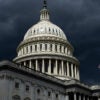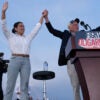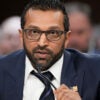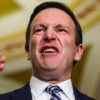“We built it. We paid for it. It’s ours.”
That was Ronald Reagan’s take on how we should think about the Panama Canal when Americans were debating giving it to the Panamanian government in the 1970s.
“We cannot abdicate our responsibility for the operation of the canal and the security of the Western Hemisphere,” Reagan said.
The Daily Signal depends on the support of readers like you. Donate now
Reagan’s argument narrowly lost out in the halls of Congress. The canal was given to Panama after the Senate narrowly ratified—and then-President Jimmy Carter signed—two treaties with the Central American nation in 1977.
But Reagan won the 1980 election, and what he said resonated with many Americans who were fed up with seemingly endless foreign-policy retreats and failures.
Was Reagan right all along that relinquishing control over one of the great architectural wonders of the world would be a huge mistake?
President-elect Donald Trump recently revived this issue in a series of social media posts and in his speeches. He’s right to do that, as I’ll explain in a bit.
If you are too impatient and just want my explanation now, here’s my appearance on Newsmax, where I talked about this.
“The Panama Canal is considered a VITAL National Asset for the United States, due to its critical role to America’s Economy and National Security,” Trump wrote on Truth Social on Dec. 21. “A secure Panama Canal is crucial for U.S. Commerce, and rapid deployment of the Navy, from the Atlantic to the Pacific, and drastically cuts shipping times to U.S. ports.”
Trump then wrote that by the terms of a 1977 treaty, the canal was to be operated by Panama alone and not a foreign power, such as China. He then blasted the fees they’ve been charging, which he called “ridiculous.”
“This complete ‘rip-off’ of our Country will immediately stop,” Trump wrote.
As one would expect, Democrats have blasted Trump for his Panama Canal comments, and Panamanian President Jose Raul Mulino angrily insisted that China wasn’t involved in running it.
But Trump raises some extremely important issues regarding the canal, which is of immense importance to a global naval power such as the United States.
Certainly, President Theodore Roosevelt understood why the canal was of such importance.
“No single great material work which remains to be undertaken on this continent is of such consequence to the American people as the building of a canal across the Isthmus connecting North and South America,” Roosevelt said in his 1901 annual message to Congress.
To link up the Atlantic and Pacific oceans with a crossing through the Americas was an immensely valuable thing in an age of globalized trade and great power competition. The French tried and failed to build the canal in the late 19th century.
From there, Roosevelt and the United States stepped in. As Trump noted, thousands of Americans died of disease during the canal’s difficult construction, which only began taking place when the U.S. backed Panamanian independence from Colombia.
Panama exists as a country because of the United States.
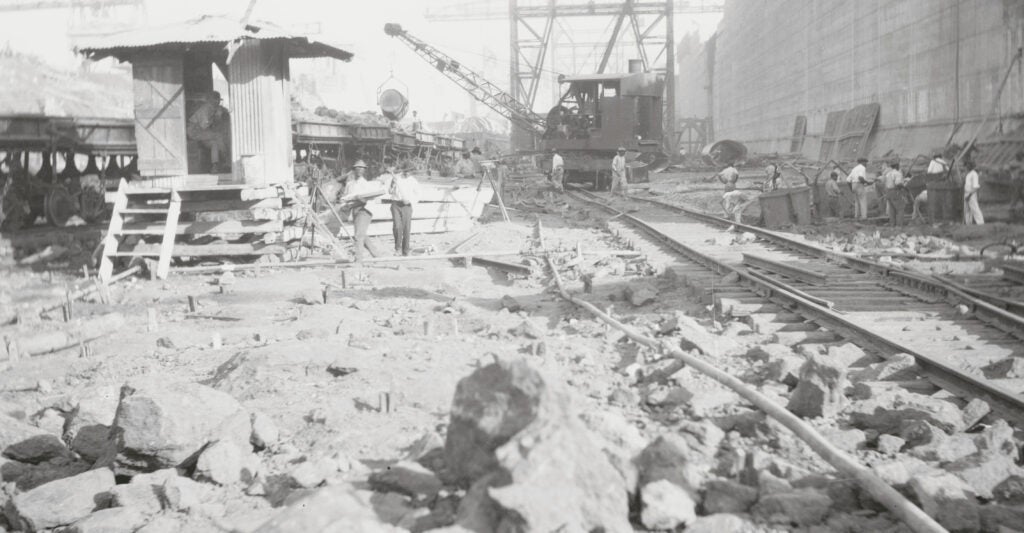
The Panama Canal under construction, seen here 125 years ago Wednesday on Jan. 1, 1900. (Bettman via Getty Images)
When the U.S. gave up the rights to the canal in the 1970s, it did so for several reasons and with some notable stipulations. Americans didn’t want to be perceived as a colonial power and were wary of, for instance, when Egypt nationalized the Suez Canal in 1956 and triggered a war with Israel, France, and Great Britain.
Many believed that it would be a boon to the people of Panama to have that source of national pride in their hands.
That was in part the argument conservative icon William F. Buckley made in his famous debate with Reagan over the issue.
On top of that, the treaties signed with Panama obligated the country to run the canal neutrally and without discriminatory pricing. The United States could intervene if that neutrality was ever broken.
While the canal has operated smoothly for the most part since the 1970s, things haven’t always gone smoothly. President George H.W. Bush launched a short and successful invasion of Panama in 1989 to depose Gen. Manuel Noriega, who had seized control of the country, refused to hold a fair election, turned Panama into a narco state, and was getting cozy with the Soviet Union.
More important for the modern state of Panama, a Hong Kong company purchased the Atlantic and Pacific ports of entry in 1996.
As Paul du Quenoy of the Palm Beach Freedom Institute wrote for the New York Post, the purchase appeared to violate the terms of the 1977 treaties, but they weren’t enforced. That’s likely because at the time Hong Kong was still a part of the British Empire and on friendly terms with the U.S.
That’s since changed.
“In 1997, Hong Kong reverted to Chinese communist rule—and despite its promise to preserve the former colony’s distinct political system for 50 years, Beijing has taken complete control there,” du Quenoy wrote. “The Chinese Communist Party can exercise direct and possibly unlimited influence over any of Hong Kong’s companies, anywhere in the world.”
Panama renewed its deal with the Hong Kong company in 2021 and thus, du Quenoy wrote, “preserves de facto Chinese control over one of the world’s most vital conduits of maritime traffic.”
Not only that, but China also has made enormous investments in Panama, and many of its companies operate there. So, the operation of the Panama Canal is threatened in a way that it hasn’t been since the U.S. ceded control more than 40 years ago.
Reagan’s warnings about giving up this strategic asset matter a lot more now that delusions about the end of history have faded.
That’s almost certainly why Trump is bringing up the Panama Canal issue now as China continues its massive military buildup and makes worrisome gestures toward Taiwan.
It’s notable that Trump has decided to bring up the Panama Canal issue alongside his desire to acquire Greenland and trolling of Canada becoming the “51st state.”
Through those comments, Trump clearly intends to move the focus of American foreign policy back toward the country’s interests in the Western Hemisphere. One could even say this is a revival of sorts of a neo-Monroe Doctrine. Trump, and some of his more notable Cabinet picks, have signaled that they intend to focus more on containing the rising power of communist China in Asia and the Pacific.
If they want to do so, it is essential that China—or any other great, rival power—can’t make serious inroads colonizing New World countries, either directly or indirectly. That was the original intent of the Monroe Doctrine, to keep hostile colonial powers out. These days those powers emanate from Asia, not Europe.
If China truly can exert control over the Panama Canal, it would be a grave threat to the United States.
When the Panama Canal experiences traffic jams and other slowdowns, it can cause significant damage to global supply chains. It certainly did last September.
Worse, imagine if there was a war that required U.S. and allied ships to cross from the Atlantic to the Pacific or vice versa and suddenly they were impeded from doing so?
At the end of the day, it doesn’t matter whether Panama’s president is angry or if The New York Times is aghast at Trump upsetting the international community. Trump understands that foreign relations is a lot more transactional and a good deal less theoretical than a college classroom discussion.
By putting the issue of the Panama Canal back in the news, he’s simply signaling that the U.S. is returning to the business of looking out for American interests first, and that those will always come before the feelings of foreign leaders or media critics.


